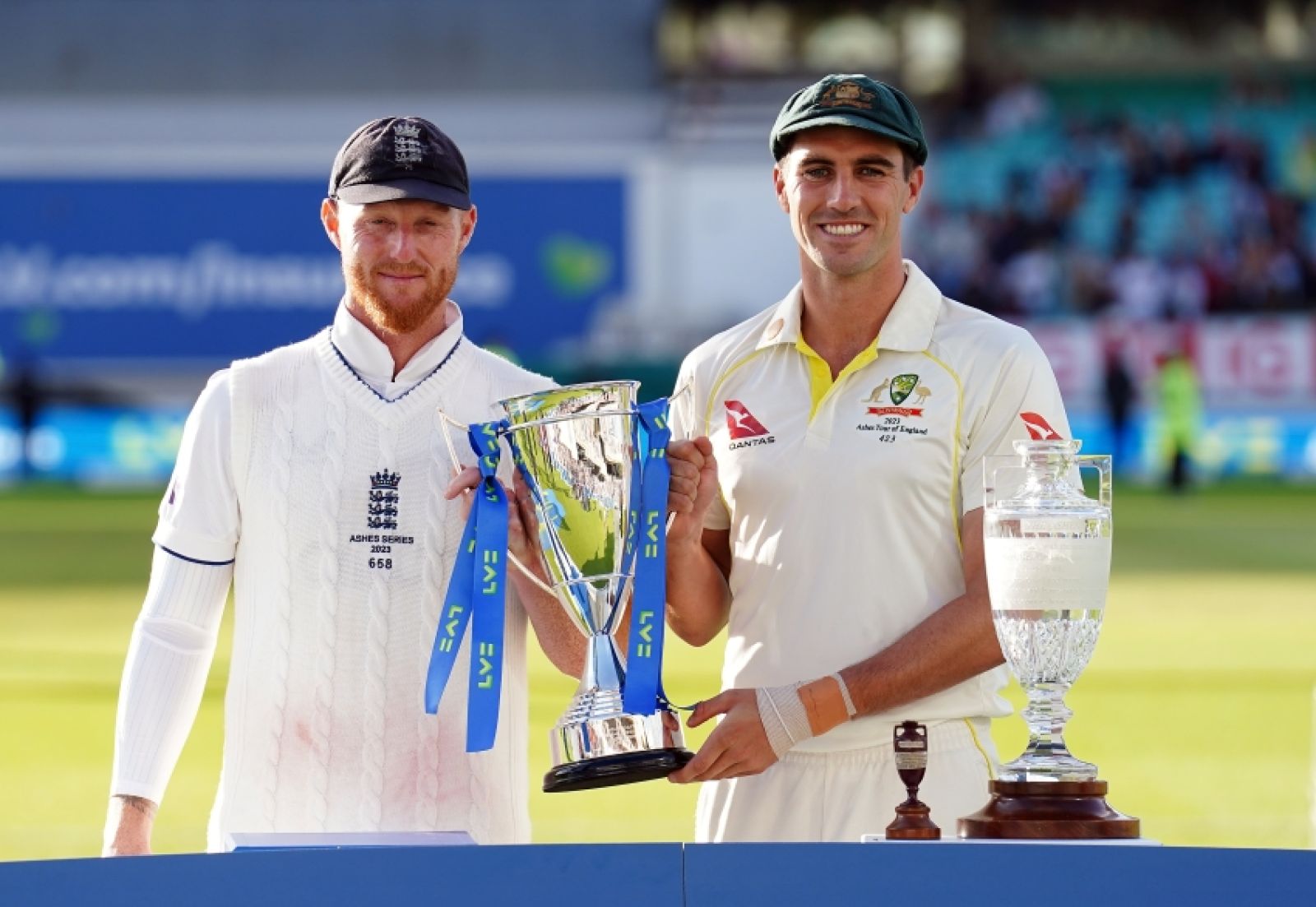
“Ballgate” and the reported lack of a post-match drink between the two sides dominated Australian press coverage following England’s victory in the fifth Ashes Test at The Oval.
The changing of the ball just before rain stopped play on the fourth day, when openers David Warner and Usman Khawaja were well set, sparked a fair amount of outrage among Australian journalists and pundits.
The Daily Telegraph in Australia described the ball change as “disgraceful”, while Peter Lalor in The Australian asked if a “blunder” by the umpires had cost Australia the series victory, saying the change “appeared to alter the course of the game” and argued it “cost the visitors dearly”.
And the Sydney Morning Herald quoted former Australian captain Ricky Ponting on Sky Sports who described it as “a huge blunder that needs to be investigated”.
He said: “The biggest concern I have is the big discrepancy in the condition of the ball chosen to replace it.
“There is no way in the world you can even look at those two balls there and say in any way they are comparable.
“That is a huge moment in this game, potentially a huge moment in the Test match. And something I think has to be investigated.
“I will put my hand up and say I have no doubt at all that [old] ball would not have done anywhere near as much as that one did this morning.”
But writing for the same title, Daniel Brettig argued “ballgate” was not to blame for Australia’s defeat.
He said: “It may be tempting to apply a conspiratorial lens to the replacement ball.
“But the underlying truth of The Oval, and indeed the second half of this Ashes series, is that Australia too often left themselves in positions where they needed to perform miracles in order to get ahead of the game.
“It will be a source of significant disappointment that a team of maturity and even temper was unable to summon a single performance good enough to win any of the last three Tests.”
Both the Sydney Morning Herald and The Daily Telegraph reported the customary post-series drinks did not happen.
The Herald quoted an England spokesman who said it had been a “misunderstanding” and Australia’s players had left the ground when they invited them in.
The report said an Australian team spokesman declined to comment, but quoted sources close to the team who said they knocked on the England dressing room door a number of times and waited for more than an hour.
The Australian’s Gideon Haigh looked beyond the drama of the five-match series and expressed concerns for the future of the format, despite England captain Ben Stokes’ assertion it was “what Test cricket needs”.
While conceding the series “contained classic matches, and imperishable passages of play, mainly from the hosts”, Haigh criticised the way the Ashes had been shoehorned into such a short period to make room for more short-form cricket.
He wrote: “This was an Ashes series not an Ashes summer. Australia have shoehorned six Tests into 54 days, England six into 60. Australia now does not play its next Test until December 14, England its next until January 25.
“Hours before the day began, one team beat another in Dallas, concluding a fortnight of T20 funded largely Indian capital and principally sponsored by an online betting company; today, one team plays another in Nottingham to commence The Hundred, in which the England Cricket Board will in due course try selling to similar corporate interests.
“Viva the Ashes! Long live Test cricket! That might be the most premature celebration of all.”
The Daily Telegraph also had some sobering news for cricket as it said viewing figures for Australia’s victory over Canada in the Women’s World Cup – which coincided with the first session – beat the final day drama at The Oval “by an enormous margin”.
LATEST STORIES
Still England's best bowler' – Australia's Lyon stunned by Anderson retirement
- 2024-05-29 15:05:23
- Hits 785
Ashes in Archer's sight as paceman aims for England Test return in 2025
- 2024-07-24 08:49:28
- Hits 384
England moving on from Anderson to boost Ashes hopes, says Stokes
- 2024-07-09 11:27:24
- Hits 332
